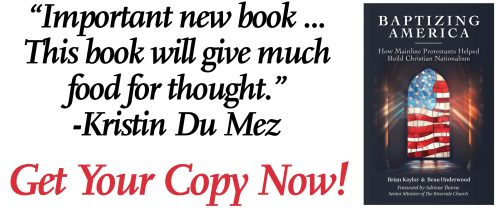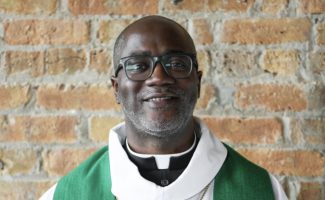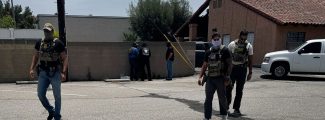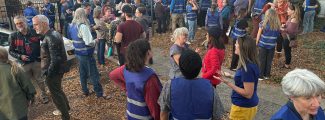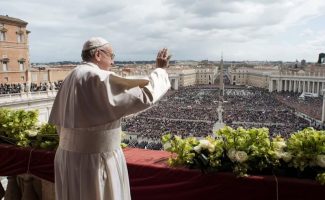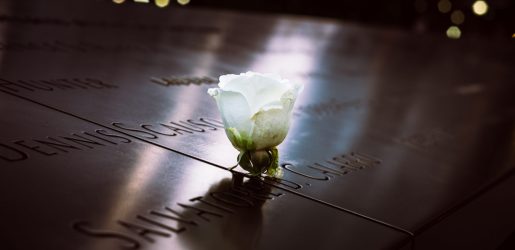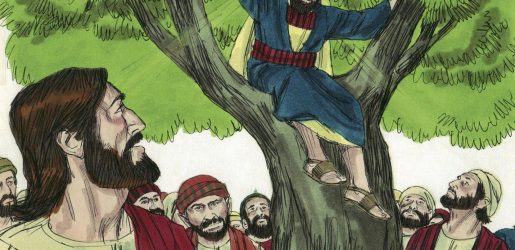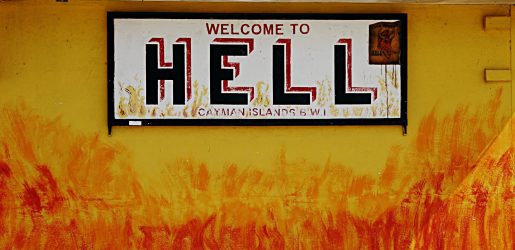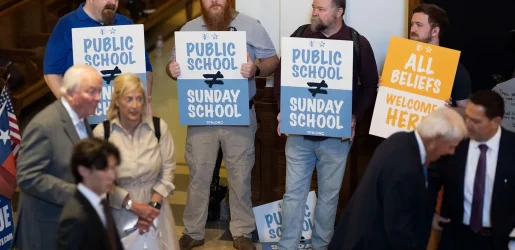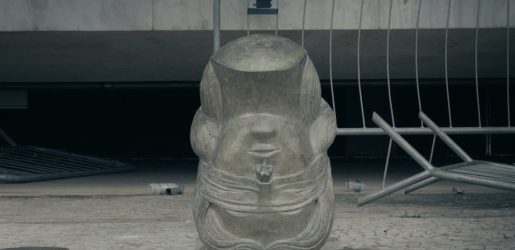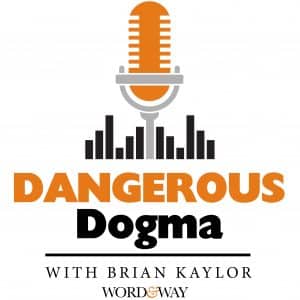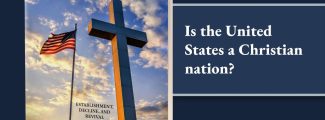Sign up to receive full essays in your inbox!
Featured
On the Sunday After Renee Good’s Killing, Minnesotans Grieve Through Worship and Song
Worshippers took a moment to pause, mourn, and sing, even as they continued to organize resistance efforts against ICE's escalated presence in Minneapolis.
Pastor Blesses ICE, Asks God to ‘Break the Teeth’ of ICE’s Opponents
Editor-in-Chief Brian Kaylor reacts to a Calvinist pastor in Minnesota to offered a blessing for ICE after the killing of Renee Good. Each generation has preachers excited to stand up as chaplains for the empire.
In Minneapolis, George Floyd-Era Faith Networks Reignite After Renee Good’s Killing by ICE
The faith-based networks, which developed organizing infrastructure and relationships during the Floyd era, are joined by newcomers as resistance efforts have intensified since Good’s shooting.
Church
ELCA Elects First Black Presiding Bishop, Calls Israel’s Actions in Gaza a Genocide
The Rev. Yehiel Curry, bishop of the ELCA’s Metropolitan Chicago Synod since 2019, will serve a six-year term as presiding bishop of the 2.7 million-member denomination.
New Jersey Church Threatened by Eminent Domain Gets a Reprieve – for Now
The mayor mentioned the decline in attendance and membership in local churches as one reason why he wanted the city to take over the Christ Church property, saying the Episcopal diocese has more church buildings than it needs.
As Deportation Fears Keep Immigrants From Work, Their Churches Feel Financial Strain
Newly strained finances are just one reality that Latino immigrant churches are adjusting to as the Trump administration accelerates a promised mass deportation campaign and other aggressive changes to immigration policy.
Nation
From Vaccines to Gender: How Christian ‘Momfluencers’ Are Reshaping the American Right
By appealing to maternal concerns about what kids eat or learn and offering a sense of clarity, community, and stability, conservative influencers are creating an on-ramp for political engagement framed as part of a spiritual war.
Bible Sales Keep Growing, Even As Many Americans Lose Their Religion
About 18 million Bibles have been sold this year, part of a five-year boom in Bible sales.
As ICE Descends on Charlotte, Faith Leaders Draw on Other Cities’ Actions to Aid Immigrants
As many as 500 people, a mix of clergy and other volunteers, have appeared at the training sessions on how to counter ICE.
World
Pope Francis, First Latin American Pontiff Who Ministered With a Charming, Humble Style, Dies at 88
Francis demanded his bishops apply mercy and charity to their flocks, pressed the world to protect God’s creation from climate disaster, and challenged countries to welcome those fleeing war, poverty, and oppression.
African Church Leaders Defend Migrants After Libya Bans Humanitarian Aid Agencies
Libya’s move signals its determination not to become a resettlement zone for migrants fleeing violence in East Africa.
Cloud of Witnesses Beneath the Sanctuary
Modern churches still gather on the traditions and teachings of the generations who went before us. This is important to remember in a time when some ‘prophets’ invent new theologies and ways of interpreting the Bible.
Editorials
Before Never Forget
Editor-in-Chief Brian Kaylor reflects on the call to “never forget” 9/11, as well as the ways we seem to struggle to even remember or acknowledge deaths today.
A Zacchaeus Moment for Southwest Baptist
Now that the trustees at Southwest Baptist University dropped their push for new governing documents, Brian Kaylor offers six next steps that leaders of the school and the Missouri Baptist Convention should take.
Messages from Hell
Editor-in-Chief Brian Kaylor responds to critics of a Word&Way clergy statement urging Christians to get a COVID-19 vaccine. And Kaylor challenges the anti-vaxxer message of “faith over fear.”
Word&Way Voices
When ‘Wrong’ Is on the Throne
Contributing writer Rodney Kennedy makes the case that there is more to the recent Pete Hegseth national security breaches than just political blunders — we are experiencing a shift in the moral universe of right and wrong.
Stop Flopping
Contributing writer Sarah Blackwell makes the case that the culture of flopping has spread beyond sports. Who are the biggest floppers right now? Christian Nationalists.
The Weird Evangelical Dance With Science
Contributing writer Rodney Kennedy addresses climate denial among a subset of Christians and how this demonstrates a surrender of truth.
E-Newsletter
Alarm Bells to Start the School Year
This issue of A Public Witness looks at the need for those who oppose Christian Nationalism to fight not just with lawsuits but also in the court of public opinion, so we can effectively protect religious liberty.
Three New Documentary Projects Warn About Abusive, Nationalistic Faith
This issue of A Public Witness recommends two films and one miniseries exploring important issues of Christian Nationalism and religious abuse.
Literally Misreading the Bible
This issue of A Public Witness looks at how one Calvinist voice with connections to Secretary of Defense Pete Hegseth is publicly doing violence to Scripture to justify some disturbingly unChristlike behavior.
Books
Review & Giveaway: Money, Lies, and God
Katherine Stewart has created a collection of dispatches from the front lines of the current assault on American democracy.
Review: Journey to Eloheh
In “Journey to Eloheh: How Indigenous Values Lead Us to Harmony and Well-Being,” Randy and Edith Woodley help readers learn lifeways that lead to true wholeness and justice.
Review: The Anti-Greed Gospel
In “The Anti-Greed Gospel: Why the Love of Money Is the Root of Racism and How the Church Can Create a New Way Forward,” Black Christian historian Malcolm Foley explores racial capitalism.
Review: American Christianity Today
In “American Christianity Today: Establishment, Decline, and Revival,” Dyron Daughrity gives readers a panoramic view of current Christianity in the U.S. — its people, conflicts, differences, and common ground.




